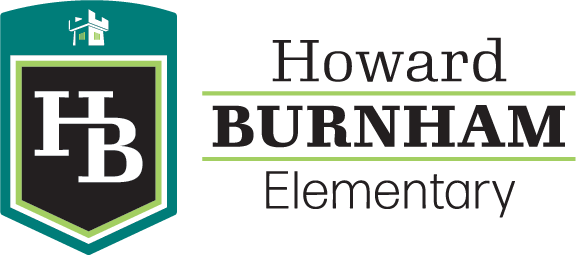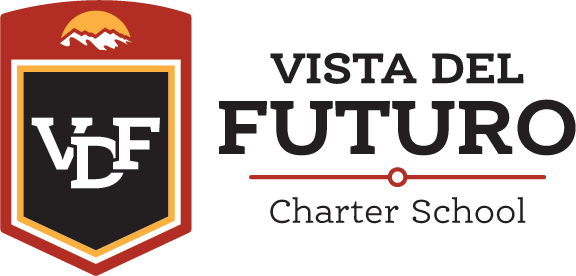Burnham Wood Family of Charter Schools participates in the United States Department of Agriculture Child Nutrition Program. BWFCS promotes and conducts nutrition education activities and that involve students, parents, and the community.
The school nutrition team (SHAC Committee) responsible for these activities is composed of the principal, classroom and physical education teachers and parents.
The BWCSD Wellness Policy addresses the following components of wellness at each of its campuses, Howard Burnham Elementary and the Da Vinci School for Science and the Arts:
Physical Activity
- BWCSD addresses physical activity through high-quality, daily physical education classes and after school athletic activities. BWCSD has developed, implemented, and evaluated the guidelines that support an effective physical education program and school-wide physical activity initiatives. The Program will be revised annually as needed or as directed by the Board of Directors.
- All students participate in physical education classes during the school day, Monday through Friday. In accordance with state law, Kindergarten students participate daily for 30 minutes, and 1st through 10th grade students participate daily for 45 minutes. Parents may request a copy of their child’s physical fitness assessment results at the end of the school year.
- Daily physical activity is vigorously and enthusiastically promoted to students, parents, teachers, and staff. BWCSD provides physical activity opportunities at various school related events including the following: Wellness Wednesdays at the Da Vinci School for Science and the Arts (DV) in which students run/walk a mile, do minute push-ups, minute sit-ups, and shuttle run. Parents will be encouraged and invited to participate in the mile run/walk. Work Out Wednesdays at Howard Burnham Elementary School and Vista del Futuro, during which students participate in different exercise stations every Wednesday.
- At DV, supervised team sports are offered to students everyday, including soccer, basketball, volleyball, football, flag tag, kick ball, dodge ball, Hula Hoop Soccer, Spot Basketball, Tennis Ball Football, Scoops, and jump rope. After school activities offered to DV students are soccer, track, and golf.
- Annual School Family Dance for which all students prepare several months in advance by learning ballroom and line dancing. Parents, grandparents, siblings, teachers and students participate in the event.
- State-required FitnessGram® testing for grades 3-5.
- Jump Rope for Heart Annual Fundraiser and event for American Heart Association.
Nutrition Standards
- The BWCSD follows the Texas Department of Agriculture’s policies regarding school meals (the Texas School Nutrition Policy) and guidelines regarding snacks, birthday parties, pizza parties, fast food, candy, and fundraising activities.
- In accordance with Federal regulations, BWCSD does not allow Foods of Minimal Nutritional Value to be sold or given away during meal periods where reimbursable meals are served and/or consumed. Such foods include: sodas, sweetened water, non-fruit juice popsicles or frozen treats, chewing gum, hard candies, jellies, marshmallows, fondant licorice, spun candy, and candy-coated popcorn.
- Vending machines on each campus are limited to serving items after school in compliance with Foods of Minimal Nutritional Value (FMNV) Policy.
- Soft drinks are not served to students and are not sold in vending machines on either campus. Carbonated beverages are not allowed on campus.
- BWCSD strongly discourages fast-food brought for meals or snacks by students. The School District has stricter policies than the Department of Agriculture; therefore, students whose parents bring fast food items for lunch will be seated in a separate location from other students eating their cafeteria lunch.
- BWCSD complies with the FMNV Policy and the following foods are not allowed on campus: hard candy, jellies, gums, marshmallow candies, fondant, licorice, spun candy, carbonated drinks, caffeine drinks, power drinks, coffee, coffee drinks, chili sauce, chili powder, candy-coated popcorn (chocolate), potato chips, chewing gum, soda water, water ices, cookies, cakes, cupcakes, pudding, ice cream, and frozen desserts. Students will be asked to throw these items away if brought on campus.
- Elementary School Classroom Snacks: All snacks (homemade and prepackaged) may not contain any FMNV or consist of candy or dessert type items (cookies, cakes, cupcakes, pudding, ice cream or frozen desserts, etc.) The School District has stricter policies than the Department of Agriculture; therefore this policy also applies to snacks students bring from home for their own consumption.
- Birthday Parties: Foods otherwise restricted by the FMNV Policy are permitted at student birthday parties.¹ Celebrations should be held on the last Friday of the month at the end of the day and should not take more than one-half hour. All birthdays for the month are celebrated on that Friday. Teachers must be notified at least two weeks in advance if parents wish to celebrate a birthday on the last Friday of the month.
- Saturday School: All policies discussed in this plan apply to Saturday School.
- Field Trips, Athletic, UIL, Band and Other Competitions: The nutrition policy does not apply to students who leave campus for campus campus-approved field trips, or to travel to athletic, UIL, band or other competitions. The school day is considered to have ended for these students. School activities, athletic functions, etc. that occur after the normal school day are not covered by the policy.
- The districts child nutrition program offers healthy meals that are in compliance with USDAs Dietary Guidelines for Americans. ¹Nutrition Guidelines for Public Schools Participating in Child Nutrition Programs.
Wellness Implementation
- Wellness Component Implementation Health Education: A TEKS-aligned health curriculum is delivered to students in all grades in the classroom and as part of their physical education classes. School activities include classroom instruction, parent training, school-wide activities related to healthy living in which health issues are addressed. Parent, student and staff awareness activities are held throughout the school year related to drug and tobacco use and violence prevention.
- Physical Activity and Physical Education (P.E.): Kindergarten students participate in 30 minutes of P.E. Monday through Friday. 1st through 8th grade students participate in at least 45 minutes of P.E. Monday through Friday. Students in high school who are working on their state-required P.E. credits participate in at least 45 minutes of P.E. Monday through Friday. After-school organized sports are offered.
- Special P.E. events are conducted during the school day, such as Wellness Wednesday.
- Annual School Family Dance is held and all are invited to attend.
- Nutrition Federal Child Nutrition Program Texas School Nutrition Policy Parental Involvement Annual Jump Rope for Heart event at Howard Burnham Elementary, in which parents participate with their children and raise money for the American Heart Association.
- At the Da Vinci School, annual Hoops for Heart event in which parents participate with their children and raise money for the American Heart Association.
- Various parent-sponsored events that help raise money for the school to pay for student uniforms, registrations fees, etc.




